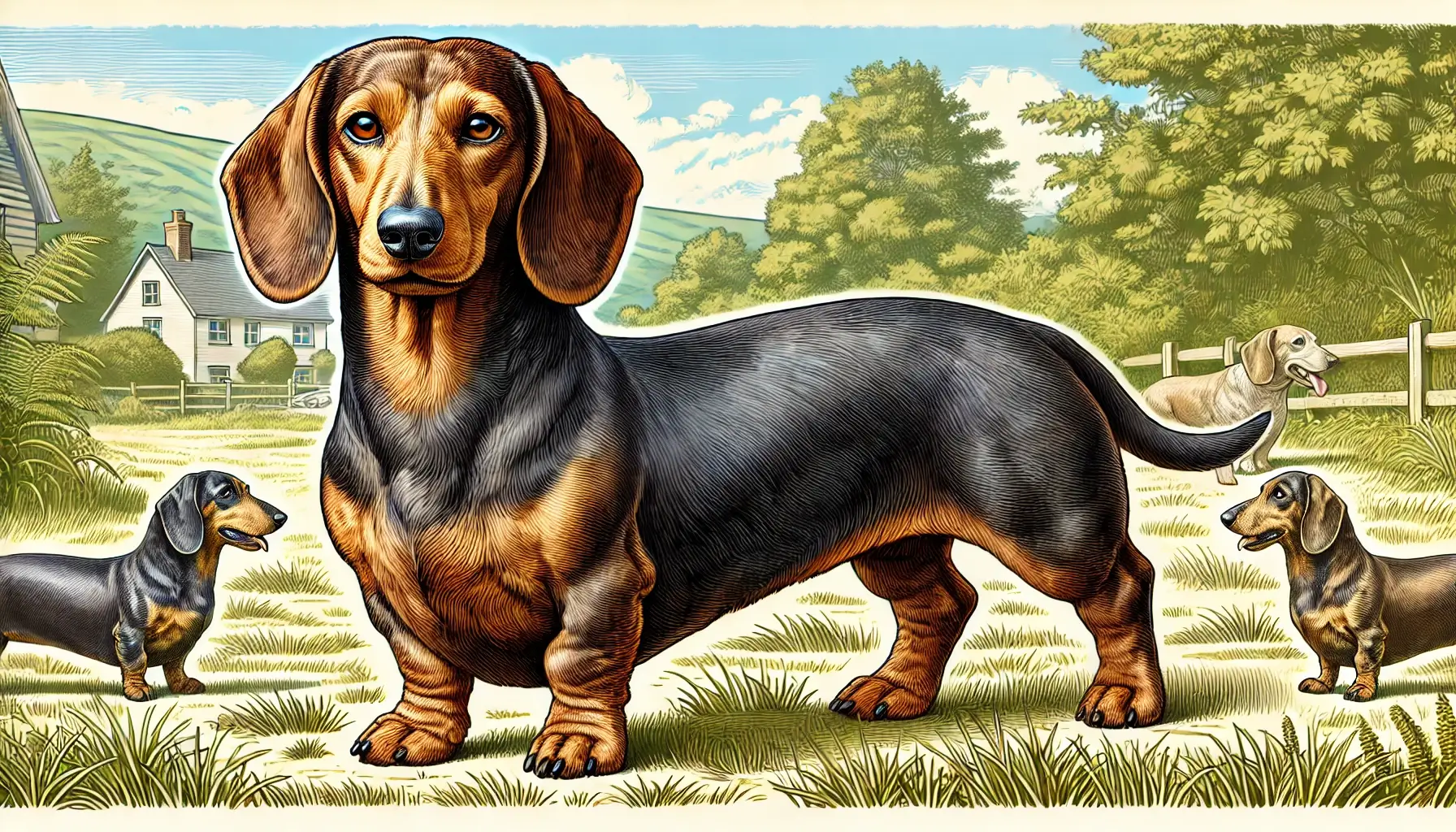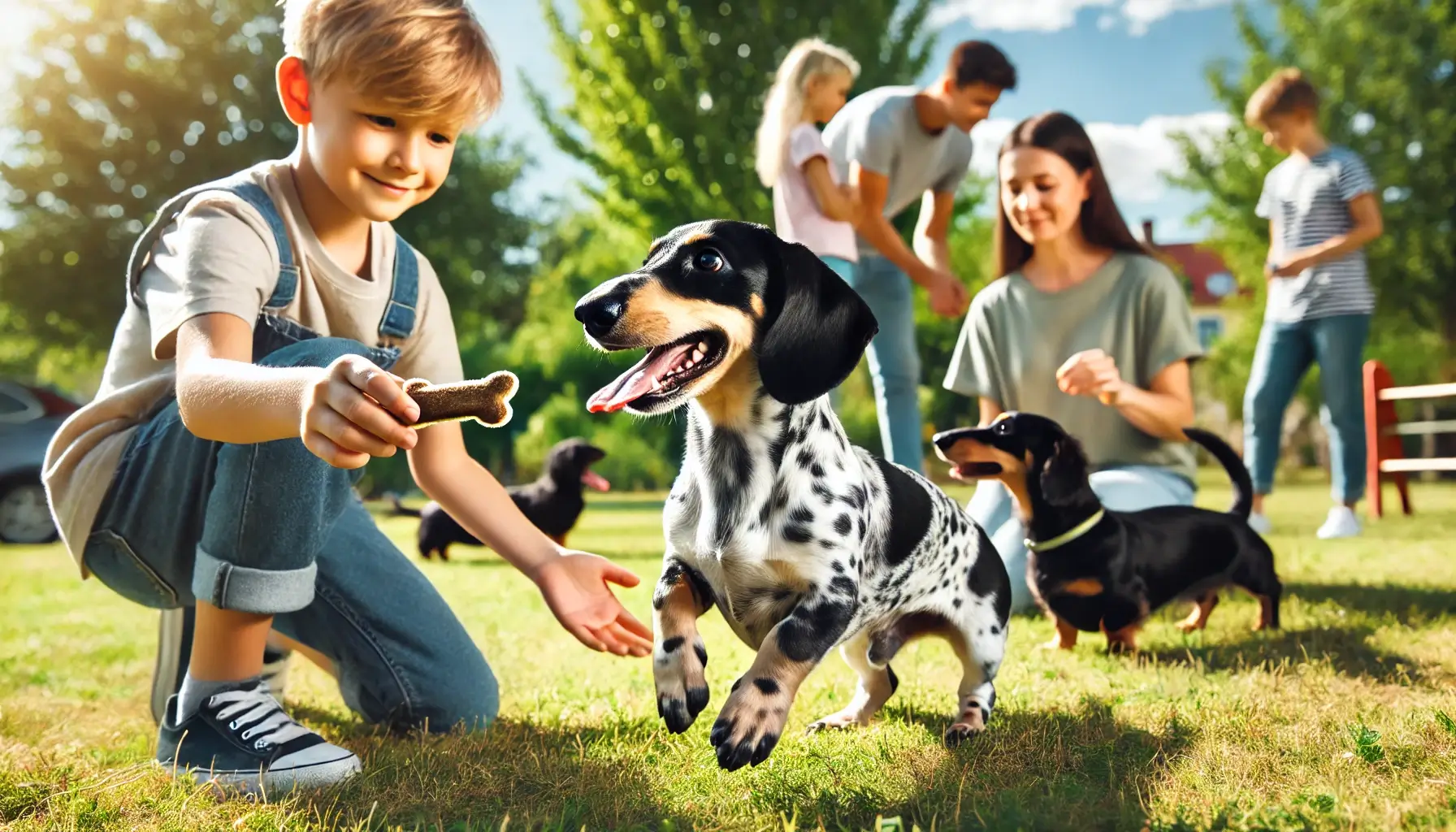
Old Dachshund Dog: How to Increase Lifespan of Older Dachshunds?
When a Dachshund reaches a certain age, it becomes an adult, which we call an Old Dachshund. An Old Dachshund, being a senior dog faces several health issues, but there are some ways to slow down the aging process to increase its life span.
In this article, we will discuss some tips and tricks you can use to improve the overall health of an Old Dachshund dog which can increase its lifespan.
We will also discuss some of the oldest doxies around the world, and after that, we will tell you the Dachshund that made it to the Guinness Book of World Records for being the oldest Dachsund. Let’s get started!
How Long Do Dachshunds Live?
Dachshunds are known for their charming personalities and distinctive build, but they also tend to have a longer lifespan than many other dog breeds.
On average, Dachshunds live between 12 to 16 years, with some even reaching 20 years! This longevity puts them ahead of many breeds in terms of life expectancy.
Signs of Aging in Dachshunds
As Dachshunds age, they exhibit certain physical and behavioral changes, just like any other breed.
Recognizing these signs can help owners provide better care and improve their senior dog’s quality of life. Here’s a look at common signs of aging in Dachshunds and tips for identifying and managing them.
Reduced Mobility and Joint Stiffness
- Signs: Older Dachshunds often become less active, with noticeable stiffness in their movements. They may struggle to jump onto furniture, climb stairs, or take longer to get up after resting.
- Tips for Owners:
- Use ramps to minimize strain on their joints and spine.
- Provide joint supplements like glucosamine and omega-3 fatty acids.
- Schedule regular vet check-ups to monitor for arthritis and Intervertebral Disc Disease (IVDD), which are common in Dachshunds.
2. Vision Changes and Cloudy Eyes
- Signs: Aging Dachshunds might develop cloudy eyes or cataracts, leading to decreased vision. They may become hesitant in low light, bump into objects, or show reluctance to go outside at night.
- Tips for Owners:
- Keep their environment consistent by avoiding frequent changes to furniture placement.
- Use gentle lighting at night to aid their navigation.
- Consult a vet if vision issues become severe, as some eye conditions may be managed with treatment.
3. Hearing Loss
- Signs: An older Dachshund might not respond as quickly to commands, sounds, or their name. They may also become startled easily due to their reduced hearing.
- Tips for Owners:
- Use hand signals along with verbal commands for better communication.
- Approach them gently and avoid sudden movements to prevent startling them.
- Regular ear check-ups can help prevent ear infections that may worsen hearing.
4. Behavioral Changes
- Signs: Older Dachshunds might become less social, more irritable, or sleep more during the day. Some may experience separation anxiety, even if they were independent when younger.
- Tips for Owners:
- Keep a consistent routine to reduce anxiety and give them a sense of security.
- Ensure they have a quiet, comfortable space to rest.
- Consult a vet if you notice severe changes, as behavioral shifts could indicate underlying health issues like dementia.
5. Dental Problems
- Signs: Aging can lead to dental issues like gum disease and tooth decay. Dachshunds may avoid hard food, show signs of discomfort while eating, or develop bad breath.
- Tips for Owners:
- Switch to soft foods if chewing becomes difficult.
- Incorporate dental chews or brush their teeth if possible.
- Regular dental cleanings with the vet can prevent painful dental conditions.
6. Changes in Coat and Skin
- Signs: As Dachshunds age, their fur may become thinner, duller, or grayer. Their skin may also become more prone to dryness and irritation.
- Tips for Owners:
- Maintain regular grooming to keep their coat healthy.
- Consider using moisturizing shampoos and products suitable for sensitive skin.
- Monitor for unusual lumps, bumps, or rashes, and consult a vet if any are found.
7. Weight Fluctuations
- Signs: Older Dachshunds may gain weight due to reduced activity or lose weight if they’re struggling to eat or have metabolic issues.
- Tips for Owners:
- Adjust their diet to their activity level, focusing on foods with high-quality protein and controlled calorie content.
- Monitor their weight regularly and consult a vet to create a diet plan if needed.
- Engage them in gentle exercise to maintain muscle tone and prevent obesity.
8. Digestive and Bowel Changes
- Signs: Older Dachshunds may experience digestive issues, leading to constipation, loose stools, or a sensitive stomach.
- Tips for Owners:
- Add fiber to their diet, such as a small amount of pumpkin or specialized dog food.
- Ensure they stay hydrated, especially if they’re experiencing digestive issues.
- Discuss any prolonged symptoms with a vet, as digestive changes can indicate underlying health problems.
9. Increased Sleep and Fatigue
- Signs: Senior Dachshunds tend to sleep more as they age, often preferring long naps over activity. They may tire quickly during play or walks.
- Tips for Owners:
- Let them rest as needed, providing a warm, comfortable bed.
- Keep walks shorter and slower, focusing on their pace and energy levels.
- Encourage gentle activity to maintain mobility without overexerting them.
10. Weaker Immune System
- Signs: Older Dachshunds may become more susceptible to infections and illnesses due to a declining immune system.
- Tips for Owners:
- Ensure they receive regular vet check-ups and vaccinations as needed.
- Provide a balanced diet and consider immune-boosting supplements (as recommended by a vet).
- Keep their living environment clean to reduce exposure to germs.
Caring for an Old Dachshund Dog: Practical Tips
As Dachshunds grow older, their needs change, requiring extra attention to ensure they stay healthy and happy. Here’s a quick guide to caring for an aging Dachshund, focusing on diet, exercise, and mental stimulation.
| Category | Practical Tips |
| Diet | Nutrient-rich meals: Opt for senior dog food that provides easily digestible protein and fiber.Small, Frequent Meals: Smaller portions reduce strain on their digestive system and maintain energy throughout the day. |
| Exercise | Gentle Walks: Short, slow-paced walks help maintain mobility without putting strain on their back.Stretching Exercises: Simple stretches help keep their muscles and joints flexible, minimizing stiffness. |
| Mental Stimulation | Puzzle Toys: Interactive toys encourage problem-solving and keep their minds engaged.Basic Training: Practicing commands reinforces memory and keeps their brains active. |
With these adjustments, you can help your senior Dachshund enjoy a healthier, more fulfilling life well into their golden years.
The 6 Oldest Dachshunds Ever in the World
We have heard a lot of cases from around the world that tell us the oldest Dachshunds ever in the world. The authenticity of their lifespan is still debatable, but they are still talked around:
No.1: Wiley The 31 Year Old Dachshund Dog
Wiley holds the record as the oldest Dachshund, reaching an incredible 31 years. His long life has inspired Dachshund lovers worldwide and is a testament to the breed’s longevity when well cared for.
No.2: Fudgie The 30 Year Old Dachshund Dog
Fudgie is another exceptional Dachshund who lived to be 30 years old. Known for her resilience and strong health, Fudgie’s story is a remarkable example of the potential life span of Dachshunds.
No. 3: Rocky The 25 Year Old Dachshund Dog
Rocky lived a long and healthy life, reaching the impressive age of 25. His story serves as inspiration for pet owners looking to provide their Dachshunds with a long and happy life.
No. 4: Lady The Allegedly 23-Year-Old Dachshund Dog
Lady reportedly lived to be 23 years old, though some debate her exact age. Regardless, she remains one of the longest-living Dachshunds, showing the potential longevity of the breed.
No. 5: Chanel The 21 years Old Dachshund Dog
Chanel was known for her playful spirit, even in her senior years, and lived to the impressive age of 21. Her story highlights the Dachshund’s ability to stay vibrant well into old age.
No. 6: Otto The 20 Years Old Dachshund Dog
Otto lived a full life, reaching 20 years of age and securing his place among the oldest Dachshunds. His longevity is a reminder of how, with the right care, Dachshunds can thrive into their golden years.
Oldest Dachshund Guinness World Record
Chanel, a beloved Dachshund, held the Guinness World Record for the oldest living dog until her passing in 2009 at the age of 21.
She was Known for her enduring spirit and charm, Chanel’s story brought attention to the remarkable longevity of the Dachshund breed and inspired many pet owners to provide the best care for their senior dogs. Her record as the oldest Dachshund remains a memorable milestone in Guinness history.
Frequently Asked Questions (FAQs)
Can Dachshunds Live 20 Years?
Yes, Dachshunds can live up to 20 years or even longer with proper care, a healthy diet, and regular veterinary check-ups. Many Dachshunds have surpassed 20, showcasing the breed’s longevity.
What Age Is The Oldest Dachshund?
The oldest recorded Dachshund, Wiley, lived to an incredible 31 years (Allegedly). Several others, like Chanel and Fudgie, lived beyond 20, setting impressive records for the breed’s lifespan.
What Happens To Dachshunds When They Get Older?
As they age, Dachshunds may experience reduced mobility, vision, and hearing. Regular vet care, a balanced diet, and gentle exercise can help manage these changes and keep them comfortable.
What Age Is A Senior Dachshund?
Dachshunds are generally considered seniors around 8-10 years old. At this stage, they may slow down, require more frequent vet visits, and benefit from age-appropriate diets and exercise routines.
What is the Oldest Mini Dachshund Ever?
The oldest known Mini Dachshund is likely Chanel, who lived to 21 years and held the Guinness World Record for the oldest dog until her passing in 2009. Her long life highlighted the Mini Dachshund’s potential for longevity.
Conclusion: Old Dachshund Dog
Dachshunds have remarkable longevity, with some living well into their twenties, and even setting impressive records.
Dachshunds may face challenges like reduced mobility, vision changes, and other health shifts, but with proper care, they can enjoy a fulfilling senior life.
The stories of long-lived Dachshunds like Wiley and Chanel show that these dogs, with love and attention, can stay vibrant well into their golden years.
Caring for an aging Dachshund is about meeting their evolving needs so they continue to be healthy, happy companions for as long as possible.





